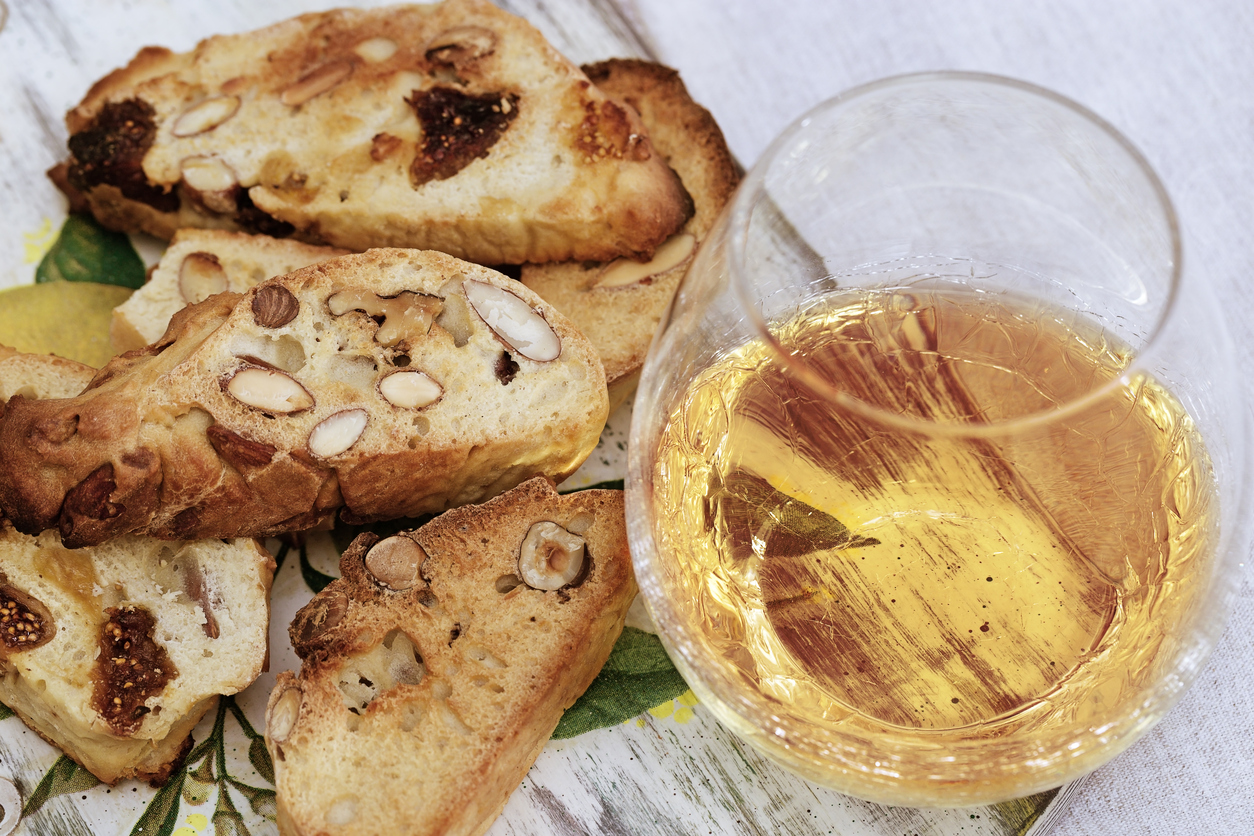When you think of wine, you may imagine a bottle of Riesling to go along with your seafood dinner, or a hearty red wine to accompany your favorite cut of steak. You may even imagine a hard day at the office, and the salivation that happens at the mere thought of a glass of wine once you walk in the door. But believe it or not, there is a whole class of dessert wines that can cap off any good meal. Dessert wine, which gets its name from being extra sweet, is produced using extra sweet wine grapes – to make these grapes sweet, the fermentation process is stopped right before the yeast turns the grape sugar into alcohol. At vineyards across the globe, this fermentation process is stopped by “super-cooling” or adding brandy to the wine. Either way, the end result is pretty sweet (literally.) Although there are so many different dessert wines, they generally fall into five distinct styles: sparkling, lightly sweet, richly sweet, sweet red, and fortified.
Sparkling dessert wine, which has an abundance of bubbles and high acidity, taste less sweet then they actually are because of those two qualities. Some grape varieties smell sweeter than others, and there is a wide array of flavors and profiles that come from sparkling dessert wine. Some labels given to sparkling dessert wine include amabile (slightly sweet in Italian,) Doux (sweet in French,) and Moelleux (this means sweet on some French wine labels.)
Lightly sweet dessert wines are perfect for a hot summer day – they are refreshingly sweet, and often have less acidity than sparkling dessert varieties. These wines are dripping with fruity flavors that pair well with vanilla-based desserts, but also pair well with fruit-based desserts. Many of these wines are of German origin, including Riesling and Gewürztraminer. Another lightly sweet wine, Müller-Thurgau, is a lesser-known German variety.
Richly sweet wines are made with very high quality grapes and are produced in an unfortified style (meaning the fermentation process was not interrupted.) These wines can age for 50 or more years (unlike Riesling, which is best served fresh,) because of their sweetness and acidity. Ice wine, or Eiswein in German, is extremely rare and expensive because it is produced from grapes that have been frozen over and are often harvested at night. This variety is rich, honeyed, and very sweet.
Although the sweet red wine is on decline because of commercialization by inexpensive brands (such as Barefoot,) there are still a number of Italian varieties that are worth trying and are made with esoteric grapes, such as Lambrusco, Brachetto d’Acqui, and Recioto della Valpolicella, which is incredibly bold and rich.
Last, we have fortified wine – because this wine is often mixed with brandy to impede the fermentation process, it will have a higher alcohol percentage; so watch out if you have already consumed wine with dinner and plan on driving home! These wines, which include Port and Sherry, have bold, rich flavor profiles that make them a perfect end to a meal.

